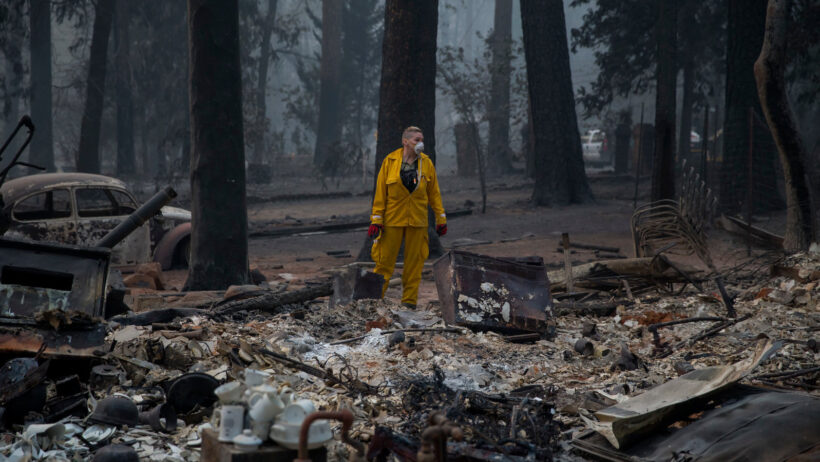Global warming is a pressing issue that continues to reshape our planet. While many are aware of its general implications, few grasp the magnitude of its statistics. One shocking statistic that often goes overlooked is the percentage of Americans who are increasingly concerned about global warming: over 70% now recognize the peril it poses. This burgeoning awareness can foster hope but also underscores a disconcerting reality. The significant gap between public concern and action offers profound insights into the complexities of climate discourse.
To understand this statistic is to grasp a shifting paradigm in public sentiment. Historically, environmental interests were often subsumed under other socio-political issues. However, recent polling indicates a monumental shift in perspective. This rise in concern can be attributed to several factors—observable climate phenomena, scientific revelations about the impacts of carbon emissions, and the interconnectedness of global ecosystems that few could ignore. Each of these contributes intricately to a burgeoning recognition that this issue transcends political divides, affecting every individual on the globe.
The relevance of this statistic heightens when contextualized against the backdrop of historical environmental activism. The late 20th century marked a time when awareness was sparking, yet concerns were often met with skepticism. The rise of grassroots movements and international summits like the Kyoto Protocol instigated dialogues, but substantial societal indifference persisted until more recently. Increasingly devastating weather events, such as hurricanes, floods, wildfires, and droughts, have exacerbated the urgency of climate action, pushing climate worry from the fringes into the daily conversations of average Americans.
Moreover, the role of media cannot be overlooked. In an age where information travels instantaneously, the narratives surrounding global warming are omnipresent and multifaceted. Documentaries, news reports, and activism campaigns unveil stark realities that compel viewers to reflect on their environmental footprint. Visual impressions of melting glaciers or flourishing wildfire zones evoke visceral responses. This mass media engagement cultivates a societal reckoning, providing an opportunity for larger groups to participate in climate advocacy and fostering hope through forums for activism.
Interestingly, the demographic landscape of climate concern is evolving as well. Younger generations, deeply invested in sustainability, converge with elders who now recognize their role as custodians of the planet. The unfurling of climate education in schools and online platforms empowers youth with knowledge, igniting a passion for preserving the Earth. In this dynamic interplay, age does not dictate perspective; rather, it can unify differing viewpoints, generating collective action. Social media platforms amplify these voices, ensuring the climate narrative reaches diverse populations.
However, despite the impressive 70% of concerned Americans, the matter of translating awareness into actionable change remains a conundrum. Voting behavior, consumer habits, and personal choices often lag behind individual conviction. A bevy of studies suggests that while people espouse concern, they frequently feel powerless in effecting change. This perception of helplessness can be disheartening, creating a disconnect between concern and the subsequent initiative necessary to make impactful decisions. It raises salient questions about responsibility: Who holds the mantle of accountability in addressing climate change? Individuals, corporations, or governments?
Addressing these queries hinges on promoting a sense of agency among individuals. It begins with longitudinal commitment to education, building a foundation that underscores the importance of both personal and collective actions. Understanding the consequences of everyday choices—be it in reducing waste, opting for sustainable products, or participating in local clean-up efforts—can empower individuals to navigate their influence. This realization fosters an environment where concern is commingled with responsibility rather than remaining a passive acknowledgment.
To catalyze such transformation, leaders in various sectors must commit to transparent communication about climate realities. Policymakers should prioritize actionable legislation that supports renewable energy, reduces emissions, and invests in innovative technologies. Companies need to embrace sustainable practices, inviting consumers to participate in that journey through conscientiousness. Together, these actions create a synergistic effect that could magnify the significance of that 70% statistic, morphing it from abstract concern into tangible change.
In conclusion, the statistic revealing an escalating concern about global warming among Americans serves as a beacon of optimism amidst adversity. Though awareness is a critical precondition for action, it must also reconcile with a sense of empowerment that drives individuals and communities to effectuate change. As alarming climate realities loom on the horizon, fostering dialogue around responsibility and practical action is paramount. The time is now for concern to catalyze unified efforts toward counteracting global warming. By engaging in meaningful discussions and cultivating impactful actions, society can harness this pivotal moment, ensuring that the narrative of concern evolves into a cohesive march towards a sustainable future.





